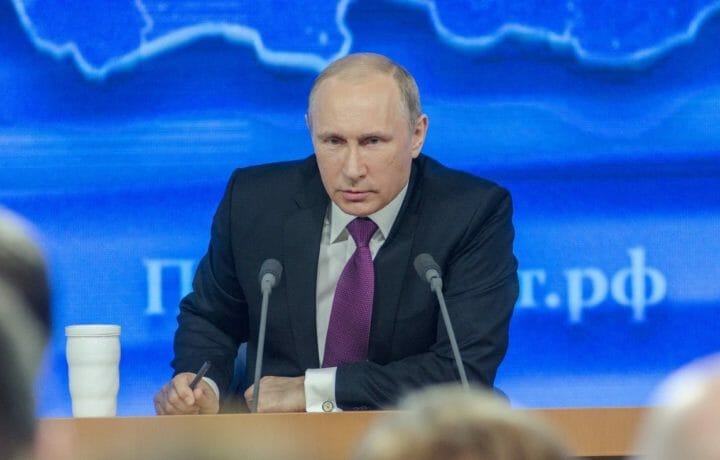Days into the Ukrainian invasion, Russian President Vladimir Putin upped the stakes on Sunday. Putin ordered Russia’s nuclear forces on high alert, stating the West is “taking unfriendly actions against our country in the economic sphere” and “top officials from leading NATO members made aggressive statements regarding our country.”
Is he ‘Erratic?’ or ‘Delusional?’ Some lawmakers have questioned his mental stability. H.R. McMaster, former Secretary of State Condoleezza Rice, Senator Marco Rubio have all publicly raised concerns about Putin. How long can Putin sustain this war, within the court of public opinion? Are internal and external pressures more significant than the Kremlin estimated? What are the pressures that could change the outcome? While both sides met on Monday in Belarus, the dial didn’t move towards peace. No ceasefire at this point, but talking would continue.
Protest and Sanctions by the World
Protests have erupted around the world. From Tel Aviv to Washington, the sky blue and wheat field yellow flag is being flown as people rally support for Ukraine. Thousands of people were in the streets across Europe over the weekend in support of Ukraine, opposing the Russia’s invasion. An estimated crowd of 100,000 in Berlin on Sunday expressed their opposition to the war and demand an end to the violence.
Sanctions have been quick and united. Utilizing financial tools, energy, asset freezes, import and export bans, countries around the world have rapidly imposed a tremendous number and variety of sanctions against Russia. Over the weekend, the U.S. State Department warned that numerous airlines have cancelled flights into and out of Russia. The European Union closing their airspace to Russia yesterday. But will these efforts effect Putin’s War?
Internal Russian Pressure
Perhaps more surprising is the pressures from within Russia. From Moscow to Irkutsk, Russian anti-war activists protested the invasion of Ukraine over the weekend. Demonstrators are boldly protesting, with Moscow and St. Petersburg police in full riot gear, throwing many to the ground and dragging them into police vans. According to a protest-monitoring group called OVD-Info, Russian police are rapidly suppressing rallies and arresting thousands, having detained some 5,700 people in 48 cities.
Flaming the fires, hundreds of thousands within Russia have signed petitions condemning the invasion. Russian celebrities and famous TV personalities are speaking out against the invasions. One Russian petition, according to the Associated Press, has gathered nearly a million signatures in the last four days, becoming one of the most widely endorsed petitions in recent years.
Internal Financial Troubles
Russians are fearful that tough sanctions from around the world will cripple the country’s economy. Since Thursday, Russians have flocked to banks and ATMs, withdrawn cash, and created long lines. Numerous reports on social media are circulating about ATM machines running out of cash. Russia’s Central Bank stated Thursday that Russians had withdrawn over 111 billion rubles (about $1.3 billion), in one day.
Russian Oligarchs Speak Out
A pushback from top Russian oligarchs is also a sign of Russian public dissonance against Putin’s war. Oleg Deripaska, a billionaire Russian tycoon who has been sanctioned by the U.S., is a longtime Putin ally. On Sunday he declared, “Peace is very important! Negotiations must begin as quickly as possible!”
Banking billionaire Mikhail Fridman, born in western Ukraine, told his staff in a letter that the war was a “tragedy,” and that it is driving a wedge between the Slav peoples of Russia and Ukraine, who have been brothers for centuries. “While a solution seems frighteningly far off, I can only join those whose fervent desire is for the bloodshed to end,” Fridman wrote, according to the UK’s FT newspaper. “I’m sure my partners share my view.”
Both men’s statements are rare acts of dissent against the Russian President and his leadership, by the Russian uber rich. Their fortunes are dependent on remaining in good favor with the Kremlin.
Moscow’s Approach
The Kremlin has sought to downplay the protests and bad press, insisting that the vast majority of Russians support the assault on Ukraine. As thousands of protesters continue their march and the Kremlin continues coercion of domestic media into supporting its policies, will Ukrainian sentiment continue to grow within Russia? Will this further stress Putin and his nuclear arsenal?




